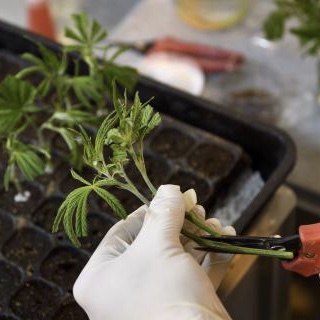MEDICAL MARIJUANA’S MAIN INGREDIENT ISN’T DANGEROUS OR ADDICTIVE, WORLD HEALTH ORGANIZATION REPORT SAYS
A top global health agency has declared the main ingredient in medical cannabis nonaddictive and nontoxic, according to a new report.
“In humans, CBD exhibits no effects indicative of any abuse or dependence potential,” wrote the World Health Organization, a U.N. agency that focuses on public health. Researchers spent months looking into cannabidiol, or CBD, the non-psychoactive ingredient in marijuana that’s often used for medical purposes. It often comes in the form of oils, drops or capsules.

The organization’s Expert Committee on Drug Dependence (ECDD) found “no evidence of public health related problems associated with the use of pure CBD.” They also found that, according to several clinical trials, CBD could be good for treating epilepsy and “a number of other medical conditions.”
Although the report came out in November, it drew international attention only on Wednesday, after the WHO published concrete recommendations from the ECDD’s November meeting. In addition to recommending a stricter scheduling for a type of opioid, the committee recommended a new approach to cannabis, responding to increased interest among its member states in researching and legalizing it.
In emails to Newsweek, spokespeople for the WHO clarified that the report very clearly “does not say that WHO recommends the use of cannabidiol.” What the WHO recommends “is that cannabidiol should not be scheduled for international control on the basis of current evidence, and that a fuller review will be carried out next year, when other cannabinoids are discussed.”
The committee said that CBD did not need to be controlled (or government-regulated) on an international level, and that this should be left up to individual nations. “Saying it should not be scheduled for international control means that it should not be prohibited, at the international level, to produce and supply it for specific purposes, such as medical treatment and research, given that WHO has not so far seen evidence of potential for abuse or harm from cannabidiol,” a spokesperson wrote. “As to what is legal or illegal, that comes under national law, so it is up to countries to decide.”
The committee will start the expanded review of CBD in May 2018, when it will make more specific recommendations and conclusions.
The legality of CBD has been a source of confusion for years. Even though it’s the non-psychoactive ingredient in marijuana, the Drug Enforcement Administration emphasized in 2016 that it is still illegal and still a Schedule I substance, along with drugs like heroin and LSD. The DEA does not recognize a distinction between CBD and any other kinds of marijuana.
Even though the DEA once eased trials for CBD in late 2015, it released a statement in July saying that CBD was still very much illegal. “Because ‘Charlotte’s Web’/CBD oil is not an FDA-approved drug…it is a schedule I controlled substance under the [Controlled Substances Act],” the DEA said.
Because marijuana is a Schedule I drug, the DEA rarely approves research on it. And even though many states have legalized it for medical and recreational use, it remains illegal on the federal level.
Proponents in the U.S. have long argued that states and researchers should at least be allowed to look into CBD’s benefits and either prove or disprove them.
Even some Republicans, who are typically more hesitant about marijuana legalization, are beginning to agree. Senator Orrin Hatch (R-Utah) introduced a bill to that effect. “We lack the science to support use of medical marijuana products like CBD oils, not because researchers are unwilling to do the work but because of bureaucratic red tape and over-regulation,” Hatch said.
Retrieved from: http://www.newsweek.com/medical-marijuana-cbd-not-addictive-toxic-who-says-748069

